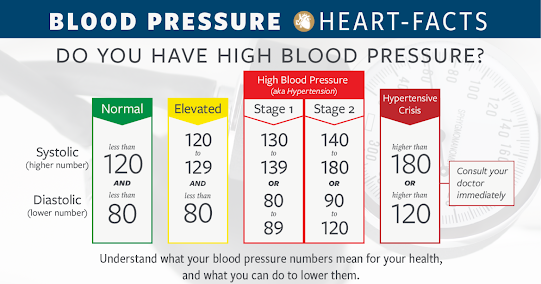Hypertension: causes and management
Hypertension: Understanding the Silent Killer
Hypertension, often referred to as high blood pressure, is a silent but deadly condition that affects millions of people worldwide. In this article, we'll delve deep into the world of hypertension, providing you with comprehensive insights, critical information, and expert advice to help you better understand this health issue.
The Significance of Hypertension
Hypertension is a common medical condition that often goes unnoticed until it leads to severe health problems. It occurs when the force of blood against the walls of your arteries is consistently too high. The long-term effects of untreated hypertension can be catastrophic, including an increased risk of heart disease, stroke, kidney damage, and even vision loss. Therefore, it's crucial to be well-informed about hypertension and its management.
Causes of Hypertension
Understanding the underlying causes of hypertension is key to its effective management. Here are some of the primary factors that can contribute to high blood pressure:
1. Lifestyle Choices
Unhealthy lifestyle choices can significantly increase your risk of hypertension. These choices include:
Diet: A diet high in sodium and low in potassium can contribute to high blood pressure.
Physical Activity: Lack of exercise and a sedentary lifestyle can lead to weight gain and, in turn, hypertension.
Smoking: Smoking damages blood vessels and can raise blood pressure.
Alcohol Consumption: Excessive alcohol consumption is linked to hypertension.
2. Genetics
Some individuals may be genetically predisposed to hypertension. If you have a family history of high blood pressure, it's essential to be vigilant and make necessary lifestyle changes to mitigate the risk.
3. Stress
Chronic stress can lead to hypertension as it triggers the release of stress hormones that can constrict blood vessels, increasing blood pressure.
4. Underlying Medical Conditions
Certain medical conditions, such as kidney disease, hormonal disorders, and obstructive sleep apnea, can contribute to hypertension.
Detecting Hypertension
One of the reasons Hypertension is often called the "silent killer" is because it can go unnoticed for years. Many people with high blood pressure have no symptoms. Routine visits to your healthcare professional play a pivotal role in timely identification and diagnosis. They will measure your blood pressure using a sphygmomanometer, which consists of an inflatable cuff and a pressure gauge.
If you're diagnosed with hypertension, it's vital to take action to control your blood pressure and reduce your risk of complications. Here are some strategies for managing hypertension effectively:
1. Medication
Your healthcare practitioner might recommend pharmaceutical intervention to reduce your blood pressure. Common classes of medications include diuretics, beta-blockers, angiotensin-converting enzyme (ACE) inhibitors, and calcium channel blockers.
2. Lifestyle Modifications
Making changes to your lifestyle can have a significant impact on blood pressure:
Diet: Adopt a heart-healthy diet, rich in fruits, vegetables, whole grains, and low-fat dairy products. Reduce sodium intake.
Exercise: Engage in regular physical activity to maintain a healthy weight and lower blood pressure.
Quit Smoking: If you smoke, quitting can help lower your blood pressure.
Limit Alcohol: If you consume alcohol, do so in moderation.
3. Stress Management
Learning how to manage stress through techniques like meditation, deep breathing exercises, and relaxation can help control hypertension.
4. Regular Monitoring
Frequent blood pressure monitoring at home and regular check-ups with your healthcare provider are essential to ensure your hypertension is well-managed.
The Importance of Hypertension Awareness
Educating yourself and raising awareness about hypertension is a crucial step in reducing its prevalence and the associated health risks. By sharing information and promoting a healthy lifestyle, you can contribute to a world where high blood pressure is better understood and effectively managed.
Conclusion
Hypertension is a pervasive and potentially life-threatening condition that requires attention and understanding. By making informed choices and proactively managing your health, you can significantly reduce the risks associated with high blood pressure. Remember, early detection, lifestyle modifications, and proper medical treatment are the keys to keeping this silent killer at bay.




Comments
Post a Comment